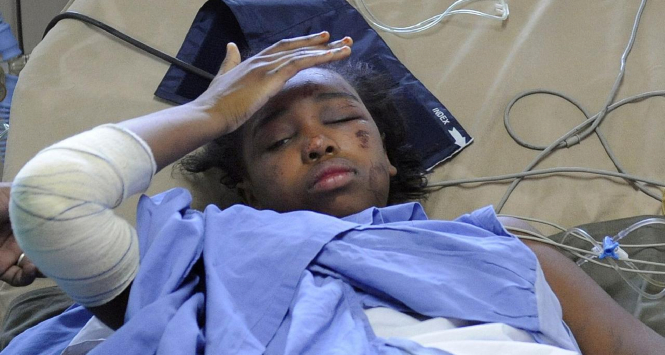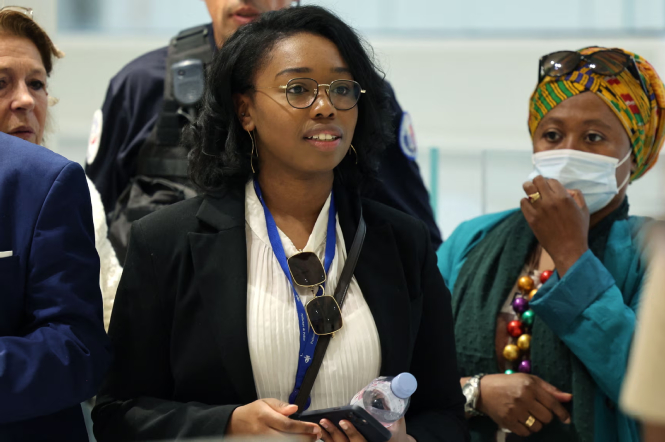Bahia Bakari was just 12 years old when she was thrown from the wreckage of a plane and left clinging to debris in the Indian Ocean, the lone survivor of one of the deadliest aviation disasters in French history.
Now 27, Bakari took the stand for the first time in 2022 in a French courtroom, where the long-awaited trial against Yemenia Airways was unfolding more than 15 years after flight 626 plummeted into darkness near the Comoros islands, killing 152 people — including her mother.
With a steady voice that eventually broke into tears, Bakari recounted the final moments of the flight and the harrowing hours she spent adrift in jet fuel-slicked waters.
“I didn’t see how I was going to get through this,” she told the court, describing the isolation, the fear, and the exhaustion that set in as she clung to a shard of the shattered plane. “The taste of kerosene was in my mouth. I could hear voices in the distance but couldn’t see anyone. I ended up falling asleep, holding onto a piece of the plane.”
A Tragedy in the Skies

On June 29, 2009, Bakari and her mother boarded a flight in Paris headed for a family wedding in the Comoros. After a layover in Sana’a, Yemen, they transferred to a smaller aircraft — an Airbus A310 operated by Yemenia Airways — for the final leg to Moroni, the island nation’s capital.
“The flight felt different,” she said. “It smelled bad. There were flies. But I didn’t think anything was wrong.”
As the plane began its nighttime descent, turbulence shook the cabin. Then, a jolt — “like an electric shock,” she recalled — and everything went black. The aircraft slammed into the ocean with its engines still at full throttle.
Bakari later awoke, alone in the dark water. “I tried to climb onto something big, but I didn’t have the strength. The water was choppy, and I couldn’t see the shore.”
Twelve hours passed before a rescue vessel spotted her.
A Courtroom Full of Grief
In a packed courtroom in Paris, over 100 grieving relatives of the victims sat silently as Bakari, accompanied by her father, testified. France has taken the lead in prosecuting the case because 66 of the victims were French citizens, and the Comoros islands include Mayotte, a French overseas department.
Prosecutors allege that the crash was not caused by mechanical failure, but rather “inappropriate actions by the crew” and a pattern of inadequate pilot training. Yemenia is charged with involuntary homicide and injury and faces a maximum fine of €225,000.
Aviation experts say the airline continued to land at Moroni airport at night despite broken runway lights, and that its training programs were riddled with gaps.
No representatives from Yemenia appeared at trial, citing the ongoing civil war in Yemen. Their absence has frustrated victims’ families and Bakari, who voiced disappointment after her testimony.
“It’s really a shame,” she said outside the courtroom. “Even if the current management wasn’t in charge back then, this is still their company. We needed them to hear us.”
Survivor, Not Just a Symbol

In the years since the crash, Bakari has often been dubbed “la miraculée” — the miracle girl. But she emphasized in court that she is more than a survival story.
“The hardest part for me has been grieving my mother,” she said through tears. “I was very close to her. Often people talk about the little girl who survived — but this was first and foremost a tragedy.”
Though it’s taken 15 years for the case to come to trial, Bakari’s testimony has pierced through the legal process with the raw, human cost of aviation negligence. She ended her appearance with a message to those who lost loved ones:
“I survived, yes. But I carry all of them with me.”
